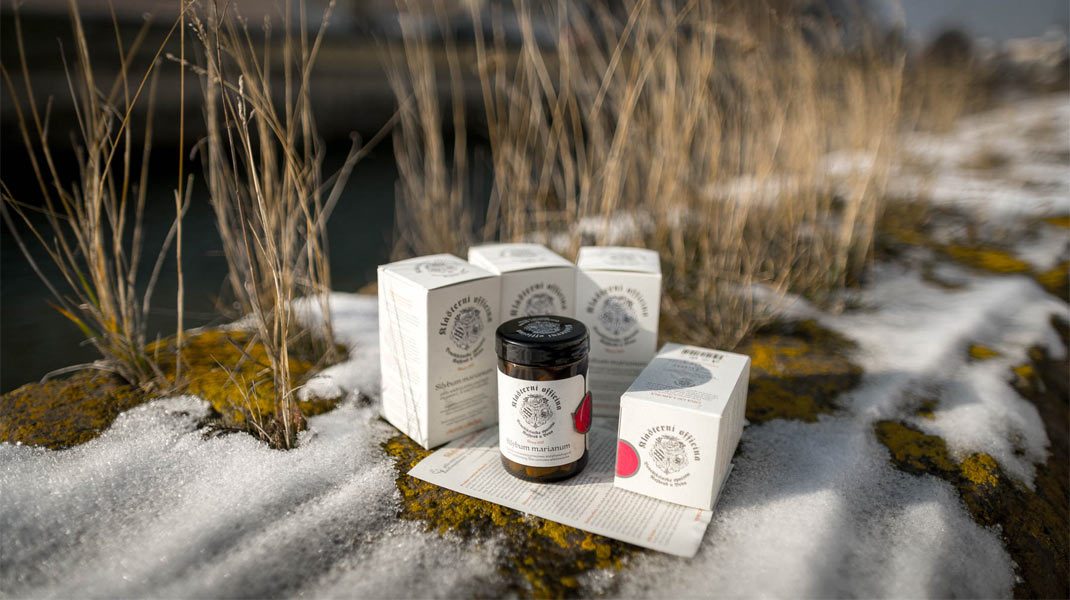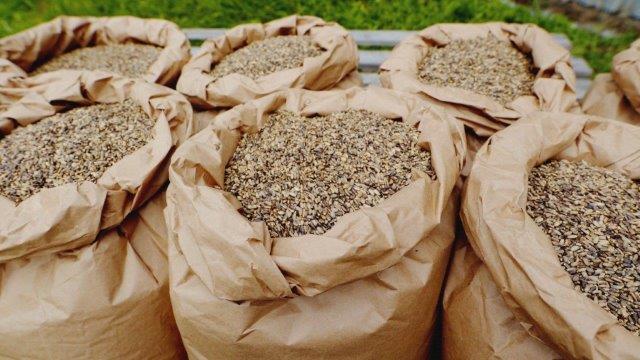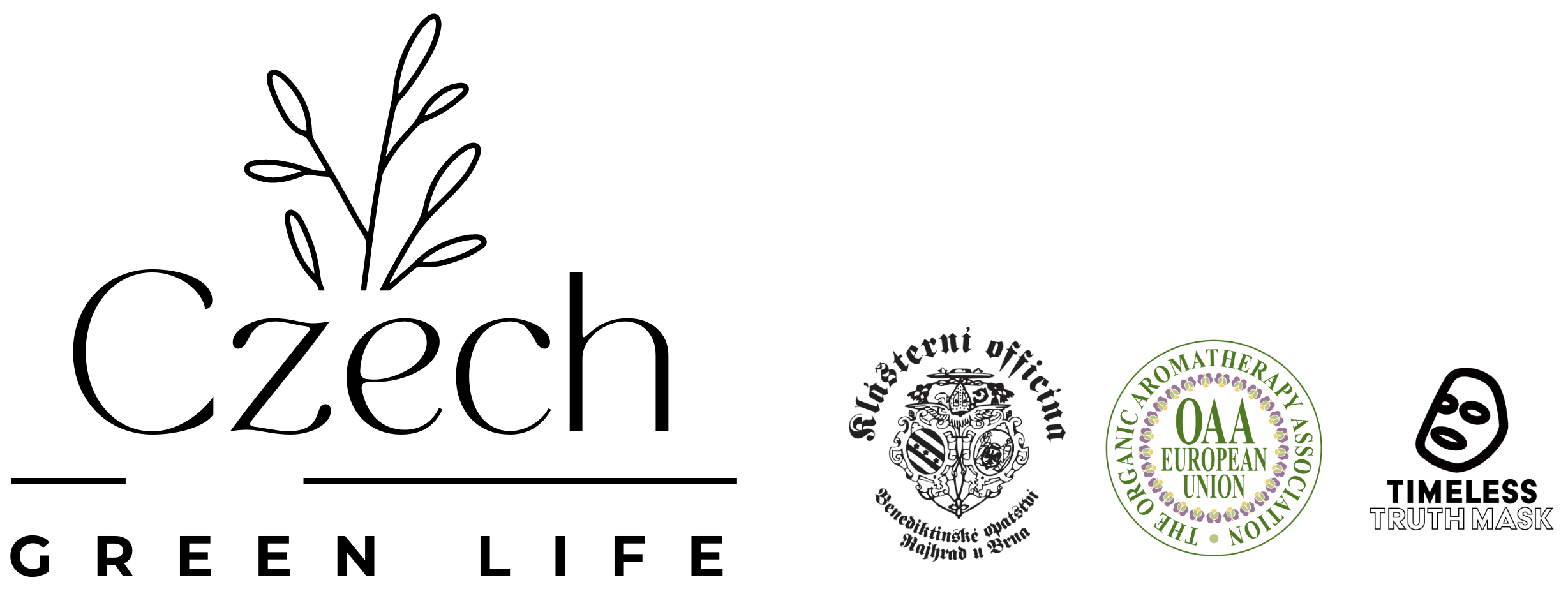Product contains silymarin – an extract of active ingredients from the milk thistle seed coat, vitamin C, vitamin D, vitamin E and sunflower lecithin. Silymarin supports physiological liver functioning. Vitamin C contributes to good immune system and mucous membrane functioning. Vitamin D participates on the cell division process. Vitamin E contributes to the cell protection against oxidative stress. Lecithin (Phosphatidylcholine) helps to keep normal concentration of cholesterol in blood. Inulin is an effective probiotic.

Silybum marianum or Milk thistle is an ancient curative herb, for its thorns also known as „Christ’s crown“. Silybum marianum originally comes from the Mediterranean, although it is possible to grow it in Central Europe as well. In the antics, the herb was used as a traditional treatment for snakebites. In the 17th century, people were already familiar with its positive effect on liver, blood pressure and difficulties connected with abdominal cavity. Milk thistle was also used as a cure for melancholy and depression.
Milk thistle’s healing effects are mostly related to liver illnesses. Silybum marianum protects this important organ against undesirable substances from food, e.g. saturated fats, mycotoxin, food additives, nitrates, alcohol and synthetic substances in many medicines, it also helps to cure liver inflammation and cirrhosis and it is used as a prevention of gallstones. Milk thistle inception mitigates liver damage consequences caused by long-term alcohol use as well.
Milk thistle regenerates liver cells and blood vessels and helps with varicose veins problems and gallbladder, spleen and duodenum illnesses.It is also used against colic and hepatitis. For its detoxification effect, milk thistle is also recommended as a dietary supplement during weight loss.
The main active substance of this herb is silymarin, which regenerates liver tissue. Silymarin’s effect is very strong, therefore it’s used for the regeneration of drug addicts’and alcoholics’ liver or even after a poisoning (e.g. with mushrooms or medicaments), after chemotherapy, for heavily obese people orfor people suffering from liver cirrhosis. In its seeds, milk thistle contains about 4 to 6 per cent of this substance. In clinical practice, silymarin is a valuable liver therapeutics.
Milk thistle contains ingredients, which reliably help to exclude toxic substances sedimented in liver. Along with this effective detoxification process, milk thistlealso regenerates liver and enables it to function without any other strain or stress.


Lecithin is a compound that belongs among the phospholipids. It’s important for building cell membranes and for the cell signalization in human body. Phospholipids form up to 28 per cent of nervous tissues dry mass. In the brain and nervous tissues, phospholipids play the same role as bile acids do in liver. They secure proper cholesterol solubility, which is an important prevention requirement against coagulation and deposition of cholesterol in blood vessels. Lecithin has an irreplaceable role in the lowering of the possibility of gallstone formation.
Lecithin included in human body takes part in the process of cholesterol expulsion as a bile component. Cholesterol is entirely insoluble in aqueous medium created by bile. Lecithin is not water-soluble either, but it is able to emulsify fats in water. One end of its molecule enables dissolution in water, while the second one enables dissolution in fats. Due to this ability, cholesterol can be transported into intestines via bile ducts without being coagulated. If there is a cholesterol surplus in blood (e.g. in connection with eating habits and diet), lecithin molecules can’t absorb it all and cholesterol starts to deposit on gall bladder and collecting ducts’ walls.
The actual cholesterol solubility in liver therefore depends on mutual balance of bile acids and lecithin. Due to the lecithin absorption, it is advisable to use it after meal, which prevents its degrading by the pancreatic enzymes.
Vitamin D2, or ergocalciferol, is of plant origin and is produced with a help of special brewer’s yeast Sacchromyces cerevisiae. Vitamin D is activated in liver and kidneys. Vitamin D plays a significant role in maintaining the calcium and phosphorus balance in human body. Vitamin D research has been recently focused on its role of treating cancer and autoimmune diseases as type 1 and 2 DM (diabetes mellitus), cardiovascular diseases, hypertension, infection diseases or neuropsychiatric disorders.
Vitamin E Vitamin E is the most important body antioxidant. It protects cells from oxidative stress and free radicals’ impact, therefore it helps to slow aging process and provably prevents from cancer.
Vitamin C, or L-ascorbic acid, is a commonly known vitamin of plant origin. Vitamin C secures proper immune system functioning by means of white blood cells formation and at the same time works as an effective antioxidant, which protects tissues from free radicals’ damage effects. Furthermore, vitamin C supports collagen formation, which is the major component of all the connective structures. The lack of body collagen might cause a higher risk of atherosclerosis because of cholesterol stiffening blood vessels. Vitamin C therefore secures not only vessels’ elasticity, but also the one of bones and teeth. It also prevents periodontitisand gums bleeding. Vitamin C is important for iron absorption and it’s a considerable regenerative support as well.
Inulin is a compound sugar (polysaccharide), created mostly in the Asteraceae family plant roots. Although it is a carbohydrate, human body can’t use it effectively. It serves as an intestine microflora energy source. Therefore, it is important for its prebiotic effect. Common dosage use can’t cause any side effects. In combination with suitable probiotic bacteria, it supports good intestines condition. It belongs into the group of so called water-soluble fibres.
Pektinis a polysaccharide of plant origin, which swells in water. It contributes to the maintenance of normal blood cholesterol levels (lowers levels ofcholesterol admitted along with fatty food) and to the blood glucose growth reduction after meal. By lowering LDL (low-density lipoprotein) cholesterol levels in blood, pectin helps to prevent atherosclerosis and difficulties it brings, and therefore indirectly protects from myocardial infarction and stroke. Pectin as a fibre supports intestine microflora, helps to reduce gastrointestinal difficulties, regulates gastrointestinal functioning and contributes to proper peristalsis. Pectin is also important for the good vitamin C absorption.
